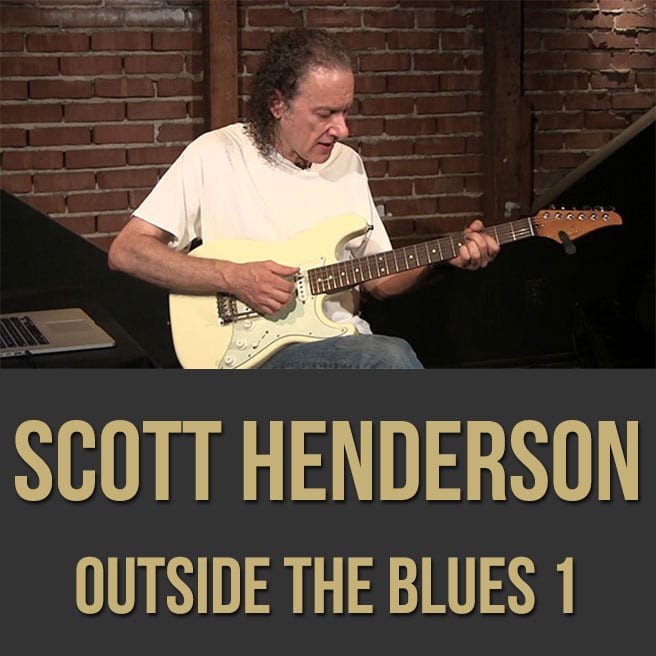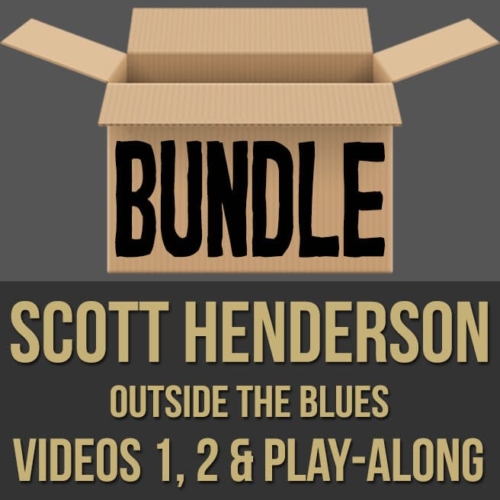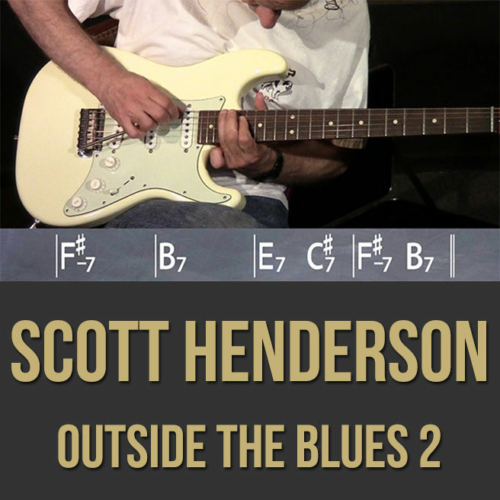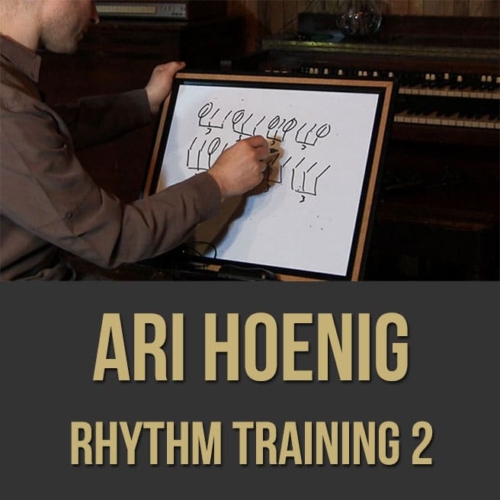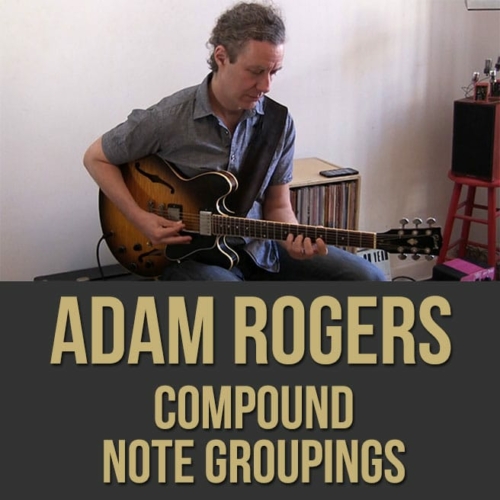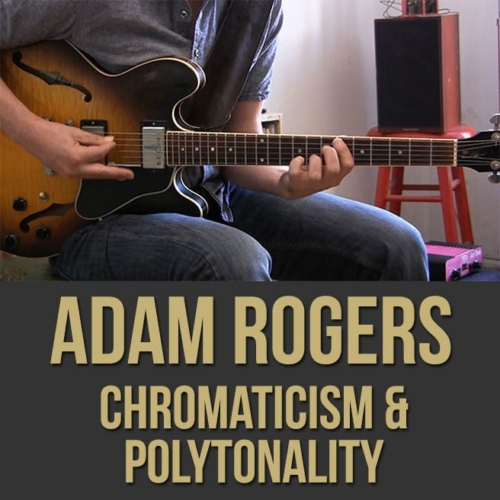Product Description
Length:
35:49
Subtitles:
English, French, Italian, Japanese, Korean, Spanish
Description:
In part one (1 of 2) of this "outside the blues" guitar lesson, legendary guitarist Scott Henderson breaks down his iconic style. Scott demonstrates and discusses how to take your blues playing to the next level, incorporating jazz language in order to add color and interest to your solos. If you're looking to break free of pentatonic cliches and add some harmonic excitement to your blues playing, this guitar lesson series is for you. NOTE: There are 5 play-along tracks (loops) bundled with the download version of this video (not the $8.99 streaming version). They are the exact same backing tracks Scott uses in the videos. You can purchase both videos and the play-along loops in this series at a discount here!
Topics Covered: 12 bar blues, jazz blues, using diminished scales, using altered scales, using the lydian dominant scale, jazz melodic minor, pentatonics scales, playing the changes, bending the 3rd, switching modes, licks, superimposing harmony, jazz harmony, being musical, sneaking in the jazz, etc.

Born in 1954, Scott Henderson grew up in an era where blues-rock was at it’s peak. His formative musical years took place in South Florida where he played the clubs with various bands, playing everything from Led Zeppelin to James Brown. As he was learning his instrument, Henderson was influenced by Jimmy Page, Jeff Beck, Jimi Hendrix, Ritchie Blackmore, and his favorite blues guitarist Albert King.
Even though Henderson claims to be more of a blues-rock player, it was the influence of jazz that led him to the style of playing and composing that he is now famous for.
Scott studied arranging and composition at Florida Atlantic University, then moved to Los Angeles in 1980. He toured and recorded with Chick Corea’s Elektric Band, violinist Jean-Luc Ponty, and was pleased to get the opportunity to work for four years with one of his favorite musicians, Weather Report’s Joe Zawinul. He recorded two albums with the Zawinul Syndicate, “The Immigrants” and “Black Water”. Henderson formed the legendary band Tribal Tech in 1984 with bassist Gary Willis, and recorded ten critically acclaimed albums. The most recent recording is “Tribal Tech X” released in March 2012.
In 1991, Scott was named by Guitar World as the #1 Jazz Guitarist, and in January 1992, he was named #1 Jazz Guitarist in Guitar Player’s Annual Reader’s Poll. His first solo blues album “Dog Party”, a welcome retreat to his musical roots, won best blues album of 1994 in Guitar Player Magazine. His next solo albums “Tore Down House” and “Well to the Bone” paired Henderson with legendary vocalist Thelma Houston. “Vibe Station”, Henderson’s latest and most accomplished work as a leader, is an instrumental trio record featuring Travis Carlton on bass and Alan Hertz on drums. The trio has toured extensively throughout the world in over 50 countries, playing music from the solo albums as well as some of Henderson’s music recorded by Tribal Tech.
Scott has also released two albums with “Vital Tech Tones”, a trio collaboration with bassist Victor Wooten and former Journey drummer Steve Smith. In 2009 he began touring worldwide with the HBC Trio, featuring bassist Jeff Berlin and drummer Dennis Chambers. Their first record “HBC” was released in October 2012.
As is often the case with a musician of Scott’s caliber, the demand is great that he share his knowledge with the current generation of guitarists. He is on the faculty at Musician’s Institute in Hollywood, where his Open Counseling sessions are some of MI’s most popular. Scott has also written columns for Guitar Player Magazine and many other guitar publications.
Alfred Publishing has released Henderson’s instructional DVD entitled “Scott Henderson – Jazz Rock Mastery”, and his first transcription book “The Scott Henderson Guitar Book”. His other two transcription books, “The Best Of Scott Henderson” and “Scott Henderson – Blues Guitar Collection” are available through Hal Leonard Publishing, as well as his instructional book “Jazz Guitar Chord System”, a revolutionary way for students to study the pluralities of jazz harmony.



